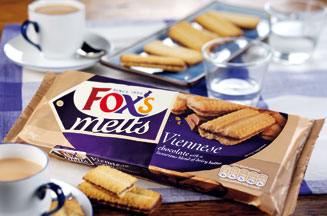FMCG brands focus heavily on supermarkets, but cannot afford to ignore the enormous convenience sector, which represents 20% of the food and grocery market. The sector is now worth £29bn, having grown by more than 6% over the past 12 months, according to IGD.
The UK convenience market comprises 50,000 stores, which include symbol brands such as Londis, Costcutter and Spar; fuel station forecourts; and independently owned shops. The supermarkets' increasing focus on smaller store formats, such as Tesco Express and Sainsbury's Local, is boosting the sector.
This growth is attracting brands' attention. 'There was a period when the big suppliers dramatically cut back their coverage of the convenience sector to spend more on the multiples, but now it's going the other way,' says Nick Fennell, managing director of consultancy Archway Management.
Local grocery stores are now offering stiffer competition to supermarkets than a few years ago. Many have improved their layout and stock, including fresh foods and cutting prices to take on the big multiples.
Demographic and lifestyle changes are also making a difference. Last year's hike in petrol prices made many consumers think twice before driving to a supermarket, for example; for many, that shift has become permanent.
Field marketing agencies are helping drive the trend, working with brands and whole-salers to improve stock availability and run promotions in convenience stores.
Late last year, The Blue Water Agency carried out a tactical drive for Fox's Biscuits, increasing the brand's share of shelf-space by 50% and distribution on each product by more than 40%, which it says is a return on investment of about 10:1. 'This is becoming increasingly important for us,' says Sarah-Jane Virr, category manager at Fox's Biscuits.
Field Sales Solutions, meanwhile, is working with wholesaler Palmer and Harvey (P&H) to persuade convenience-store owners to stock bestselling ranges and participate more fully in promotions. Agency staff survey participating stores every three weeks and encourage them to improve their perform-ance. 'They can put on double-digit sales growth, which is impressive in this climate,' says managing director Kate Carr.
Being told what to do is a novel experience for independent shop owners, but the rewards are enticing. The Summit Service Station in Stadhampton, Oxfordshire, says sales have risen 12%-14% since it signed up to P&H's campaign last year. 'We are not used to people coming to inspect us, but it's good to be given dead-lines, and we work hard to make sure everything is right,' says the store's managing director, Mohamed Farooq.
Some agencies are doing as much of the work as they can on the telephone. One is Box Marketing, which runs campaigns with Spar, Nisa, Londis and other independent retail groups. 'Managers often prefer a phone call
as it takes up less time,' says Box Marketing managing director Debbie Hearn. 'We can tell them when an offer is going to run and when they can get it on the shelves. For beer brands, we can say whether the promotion ties in with a TV sporting event, in which case they should expect customers to be stocking up.'
There are many challenges in dealing with such a fragmented sector, however. Personal relationships are a much bigger part of the equation than they are with supermarkets. Agencies can be frustrated by the unreliability of some independent store owners, who cheerfully agree a deal, but on the next visit are found to have signed up with someone else. Small stores sometimes fill shelves with products bought from the local cash and carry, or even from promotions at the local supermarket, complicating agents' efforts.
In this sector, field marketers need to gain an owner's trust. Instead of merely plugging their client's brand, they will get better results by suggest-ing a change to the way the entire category is presented, and wait for the boost in sales to confirm their expertise.
Yet, while field marketers can have far more influence on convenience stores than super-markets restricted by head-office agreements, there is more to it than that. 'With the big multiples, you might replace a missing shelf-label that is blocking the supply chain, where-as with convenience stores you are selling in more product,' says Blue Water Agency managing director David Louis. 'However, the ROI is likely to be much smaller, because they don't come close to supermarket sales.'
Targeting the convenience sector offers great potential for influencing behaviour, but brands and their agencies will need to remain realistic about the impact on overall sales. n
Feature
Field Marketing Report - FMCG brands and convenience stores
LONDON - Smaller multiples and convenience stores are notoriously difficult for brands to reach. Marketing examines the ways in which marketers can get the most from this fragmented retail sector.


